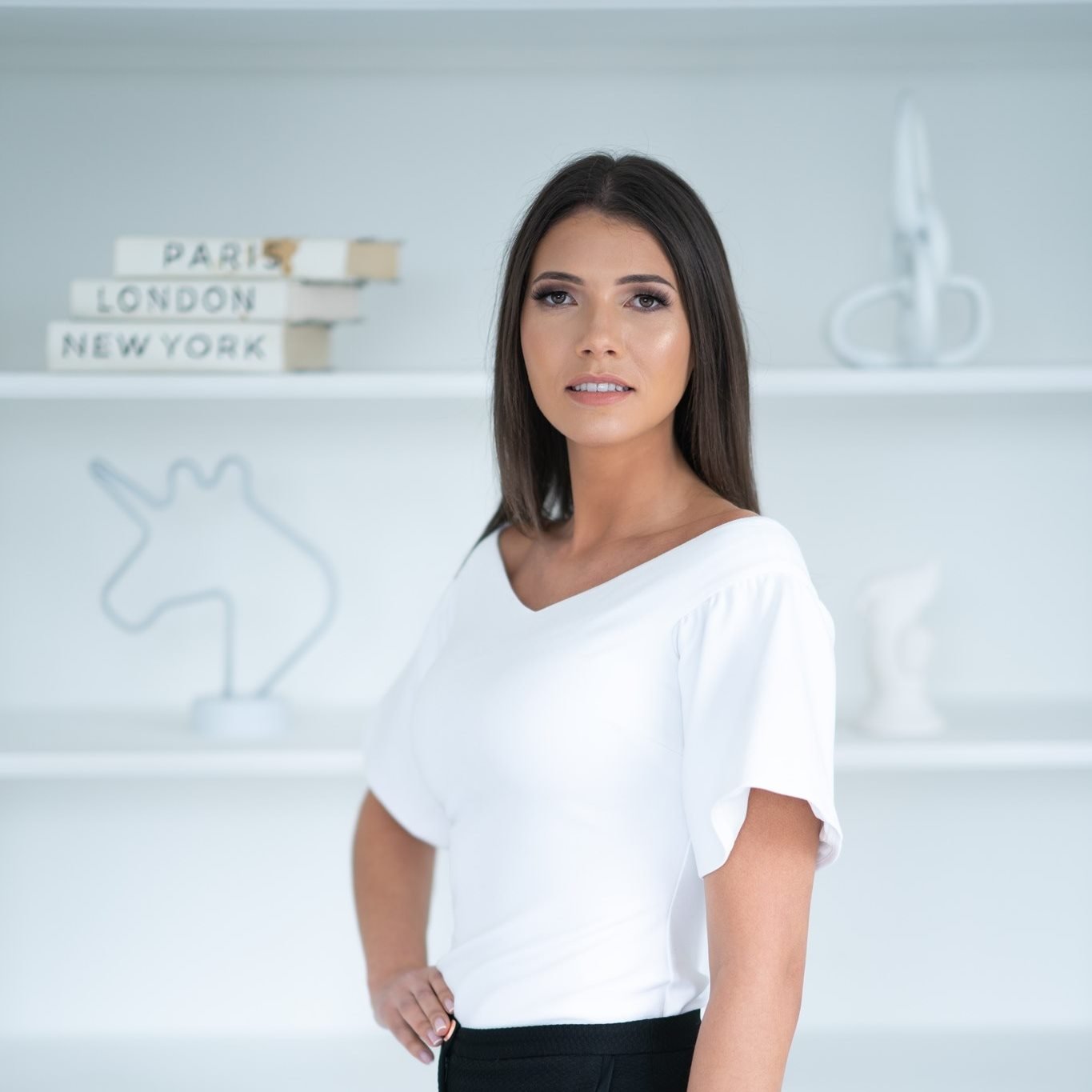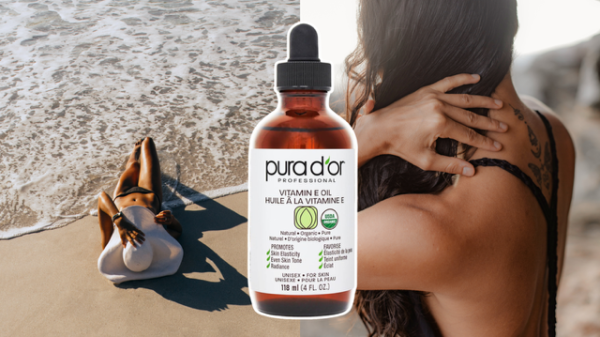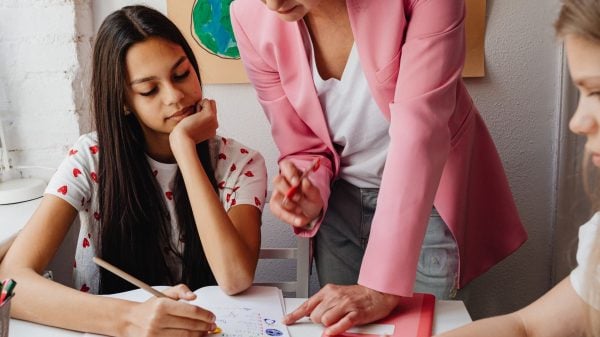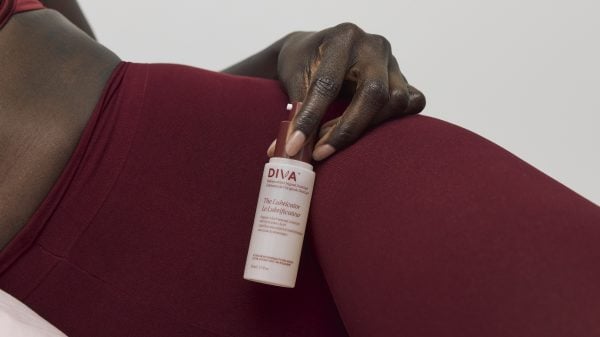On this week’s Let’s Talk About… episode, Elise sits down with CEO of H:OM Organizing, Megan Arthurs.
Megan is the CEO of home organizing. Her organizing philosophy is a space around you reflects your inner spirituality. She understands when the environment you live in is organized, other spaces in your life become clear and calm. Megan is an on-air expert who frequently shares her organizational tips on breakfast, television, Global News Morning, CP24, Breakfast Weekend, and Chch Morning Live.
Elise and Megan talk about tips & tricks to declutter, the benefits of decluttering, and the relationship between your mental health and decluttering.
“The art of decluttering your space is much grander and much more rooted than just the stuff in our space. It’s actually about letting go of a lifestyle, routines, rituals, habits that are not serving you. It’s about breaking blockages and boundaries that are preventing you from being present.” Megan tells Elise on Let’s Talk About.
Check out the show’s transcript below:
[00:00:00] Elise: Hi everyone, and welcome. Today let’s talk about Inner and Outer Clutter with Megan Arthurs. Megan is the CEO of home organizing. Her organizing philosophy is a space around you reflects your inner spirituality. She understands when the environment you live in is organized, other spaces in your life become clear and calm.
Megan is an on-air expert frequently shares her organizational tips on breakfast, television, Global News Morning, CP 24, Breakfast Weekend, and CHCH Morning Live. Hi Megan, thanks so much for being here with us this morning.
[00:00:32] Megan: Hi Elise. I’m so grateful to chat with you today.
[00:00:36] Elise: Me too. So I was saying just before we started recording that this is a very timely conversation for me cuz I just got back from vacation.
I feel like my house still has like Halloween decorations. I, I need some tips and tricks. I need my mind at ease. But I did start cleaning this morning and it’s, I, what we’re gonna talk about today is that kind of, you know, decluttering of our minds too when we declutter our physical space. And I do feel like a little bit better that like when my space is managed.
So why don’t we start with how you got into this, this space of decluttering and home organization. Sure.
[00:01:12] Megan: Yeah, I, I launched home organizing back in 2019, and it was really the merging of my passion for health and wellness with my strong value of tidy living and functional spaces and environment. And I really saw, uh, a gap in the Canadian market that there wasn’t really this holistic service that assisted families or individuals with creating a space that was supportive of their lifestyle and their goals and dreams.
You know, we have interior decorators and designers and home stagers and cleaners and movers, but, uh, I really felt that there was this missing. And I, you know, I stand for quality of life and I, I really care about wellbeing. And I thought, you know, there must be other people out there that need help creating an environment that does support them and that, you know, makes them feel good, uh, mentally and.
[00:02:19] Elise: Well, it’s funny cuz you know, I think we all wanna walk into a beautiful space, but if that space isn’t like you’re saying functional or supportive of your lifestyle, it, it becomes kind of like a nuisance. And it’s funny cuz I think we all have those certain areas of our house that don’t feel like they flow the right way.
I know in my house it’s like, There’s a front entrance, but then there’s an entrance by the garage and it just does, it feels like everyone drops their shit like on the kitchen table instead. So like , I’m just sitting in that area right now, so it just feels like it’s not right. Like you wanna kind of create that flow.
And I, I’ve never thought of it that way. I mean, I think. So you said you started things in 2019 or 2018? Sorry,
[00:03:04] Megan: 2019. Just before the pandemic
[00:03:06] Elise: really. Okay. When people were even spending, gonna be spending more time in their HO homes, unbeknowns to us. Was this also around the time, like Marie Condo was probably around that time.
[00:03:17] Megan: She was definitely around that time. Okay. Yeah, she does have her own philosophy. I mean, there’s so many organizing philosophies out there, uh, across North America, I would say. Um, but it’s so individual, like every home is different and every individual is different of course. So, You know, for me it’s not necessarily adhering to a specific organizing philosophy.
It’s really about like what works for you and your home. And we are all so busy now, you know, we have active lifestyles, we’re always on the go. So it’s how can we create optimal function and flow in our home while still marrying that with beauty, because I do believe that, that the two can can live together.
[00:04:02] Elise: And so how, so take us through, I guess you have a new. And I feel like I wish I was, You were in my physical space too. I was like saying you have a new client, Megan . But take us through that process. Like what are those organizational philosophies? Are there like three major ones? Are there, you know, too many to kind of mention today?
What do you bring your clients through in your first meeting with them?
[00:04:24] Megan: Yes. Okay. This is like our mock consultation, . So there’s two phases that I start with, and the first is actually hands. Okay. Well, I always encourage clients to start with a self assessment that is regarded around intention because there is so much power in intent and you know, the art of decluttering your space is much grander and much more rooted than just the stuff in our space. It’s, it’s actually about letting go of a lifestyle, routines, rituals, habits that are not serving you. It’s about breaking blockages and boundaries that are preventing you from being present. So asking yourself a series of questions. So what are the results that you want? How do you wanna feel in your in a perfect world, what would your ideal lifestyle look like? How would you feel in your home? So these are really the questions that I guide clients in honing in on, because you have to have a purpose. You have to have a why. This is a, it’s, it’s a life transformation that you’re taking when you declutter.
And any time you endure a life transformation, if you don’t have a purpose or why am I doing this? It’s so hard to trudge through the hard times, right? We fall, we fail, we take a step backward. We have to take three more steps forward. It’s really challenging. So having a why and just having this time to reflect, like, why are you doing this?
Why does it matter? You know, if you clear clutter, what will you gain in your life? You know, asking yourself these questions. So that’s really the first phase that I take clients through. And then secondly, um, you know, it’s about decluttering. So purging going through is so hard for people, right? I love
[00:06:14] Elise: it.
So I like, yeah, I like, I get a weird like, hi from it.
[00:06:21] Megan: There’s, Yeah, that’s not a mistake. It’s true. There’s instant gratification, um, and satisfaction that we feel, but it’s going through, um, your home and deciding how you wanna tackle it. So I like doing room by room, um, to really help you stay focused and on track and going through all of the items in the room and asking yourself, This is like my formula that I’ve created.
Do you use. Do you love this? Is this adding value to your life
[00:06:51] Elise: and does it have to be all three or could it just be one? It can just be
[00:06:55] Megan: one because sometimes are sentimental and we definitely, you might not use your old great, your great, great grandmother’s teacup and saucer, but you love it. And it means something to you.
So that’s okay. I mean, it is okay to hold onto things, but you know, you don’t wanna hold onto so many things that you’re sacrificing the real estate in your space. Mm-hmm. and clarity by holding onto something that’s sitting in a cardboard box, collecting dust, so mindful of, of the choices you’re making.
And, and then I like working in a system of threes, I call it. So it’s creating piles while you’re doing this. So a pile of what you’re keeping. A pile of what you might donate or sell, and then a pile of recycling garbage, those types of.
[00:07:41] Elise: Okay, now it, it’s interesting too cuz as you mentioned, that donate pile, I do feel, and maybe I’ll take a step back from that, Do you not, do you feel like it’s become a little more of a topic of conversation, decluttering?
Like, I’m even thinking when you mentioned that donate pile, like things like Poshmark coming to Canada, resale in general, Facebook marketplace, right? Like is there, is that fair to say? Like there’s a little bit more of a movement towards like clearing our.
[00:08:09] Megan: Yes, 100%. I think there is definitely a strong movement toward that.
I think the pandemic also encouraged that, you know, the pandemic taught us that the only things we, the only thing we have really is our space to rely on it. And that you had be in your space, you weren’t actually allowed to go anywhere for quite some time. So I do think that it is a common topic of conversation and really is, it is a movement.
I, I like that word that you , that you put there. It is a. Yeah,
[00:08:37] Elise: I just, I feel like there’s been like little supportive things along the way, whether it is TV shows, whether it’s people like yourself having businesses and being on, you know, different programs. Whether it is like these, this advent of resell of goods, which I think is also, you know, we talk a little bit.
I wanna dive more into like the mental piece of it, but I also think there’s a, there’s a high that you get out of selling some of that stuff too, right? Like I, There’s not, I like that part of it as well. So can you take us through like what the psychology is behind when we’re, when we’re clearing our
space?
[00:09:15] Megan: For sure. So, you know, it, it all starts in the brain actually. Um, our brains are naturally programmed to like order. We like structure. We, we are inherently born that way. But when your space, your, your visual representation, Is cluttered and chaos and in disarray, it actually drains your cognitive resources, which means really,
[00:09:44] Elise: I love when people talk about brain things, so keep going, ,
[00:09:48] Megan: it lowers your focus, it lowers your working memory, and then this is when stress.
Uh, is created, and when I say the word stress, like I’m not taking that word lightly, it actually spikes the stress hormone that we have called cortisol and there it negative, negatively affects our nervous system. So, you know, we think it’s just the stuff on the surface, but there’s a lot going on, you know, internally.
With us when we are living amongst clutter and chaos and when we feel unsafe in our space, if our nervous system is flashing, ding, ding, ding, like this is a, a space that is not feeling supportive of you, our fight and flight system then kicks in, which is that survival mode that we don’t want to be in.
And this affects. Everything, Elise. This affects, you know, your sleep, your relationships, your mood, your digestive system, your ability to fight, uh, flu and sickness. So this is really, um, why it’s so important that we can mentally manage your space because we need to have control over our environment.
[00:10:55] Elise: Mm-hmm. . And I would imagine, Megan, as you’re saying, , Um, just even the control of our environment. I’m even relating that to, Okay, when I know that I have like, meal prepped or just when I’m organized in general in my life versus when I’m just disorganized or unorganized. So I could, I’d imagine that same philosophy applies, right?
[00:11:17] Megan: 100%. I, you know, your lifestyle. Your lifestyle and organization are really hand in hand, and it does sort of affect everything. So when you’re living in a space that is calm and clear, you mentally feel calm and clear. And then you also gain free time. You gain free time to do your meal prep, to go to the gym, to, you know, spend time with people you love, doing things you love, strengthen your relationships.
So it really is all related and interconnected. And I do, you know, They say that there’s these pillars in life, like you have your pillar of fitness and your pillar of health and your pillar of nutrition. I honestly believe that organizing is a pillar to your health and wellness because it has an immediate and direct, um, effect on your quality of life.
You know, if you pop on a, a diet tomorrow, you’re not gonna see results for six weeks. If you clean out your closet tomorrow, you’re gonna reap those benefits immediately.
[00:12:15] Elise: True, true. So we should all be closet clean. Tomorrow. But, but, um, the one thing that you said too that I, I was just thinking of it, I don’t know if, if you had the answer to this or not, but something that we can maybe explore together.
When I think of my twenties, it was more chaos, right? Like, I was happy to take a weekend trip and I was happy to have, you know, that pile of clothes on the floor and didn’t really maybe care as much of my, about my surroundings. And I was always on the go. But now I feel into my thirties, I have. Desire for order and routine and organization.
Is there any data around if this is something that happens more with age or if this is just maybe like you, you are settling into your own life, Like is there anything about that?
[00:13:04] Megan: Yeah, that’s a great, really great point and very interesting. Um, you know, I think as we age and get a bit older, there is a bigger responsibility.
Like we start to take on more responsibility in our life. Yeah. And this responsibility comes, um, more stress and we. Gravitate, in my opinion, we gravitate toward that routine and that structure and that order because it mentally relieves you from managing so much. Mm-hmm. , I think you’re a bit younger. Um,
[00:13:37] Elise: Like, I’m just thinking of the teenager who has the messy room.
Right? Right. Like they can, and I, I don’t have a teenager, but I feel like some of them can like still find that item in the pile. Right. Whereas like, I don’t know that as you age you have that same tolerance for disorder or maybe it’s just a tight, Depends on the type of person you are, but I’m, Yeah. Yeah.
I
[00:14:01] Megan: think when you’re younger too, it’s just. You don’t value, uh, a tidy space, perhaps. Maybe other people are doing some things for you. Uh, the responsibility isn’t really there. I think as you get older, your values change, especially if it is your own space, right? It’s your own environment you’re taking care of.
I think you tend to care about that a little bit more. Mm-hmm. .
[00:14:27] Elise: So if someone’s. If someone is maybe , maybe they’re not that teenager, but still doesn’t have that same mindset, how is there, you know, ways besides those three questions, which I think are great, are the three piles and the questions to ask, Is there ways that they could slowly start, like developing that mindset like, I feel like my mindset was developed with that because I lived in a studio apartment for 10 years and like you had to, like, you had to declutter almost quarterly because otherwise there was, there wasn’t enough physical space.
So I feel like for me it was kind of like ingrained in me after my tw or into my twenties. Is there, if someone maybe didn’t have that same experience or didn’t have that same joy or dopamine hit, is there little kind of ways that they could get there or build that within the.
[00:15:13] Megan: Yeah, certainly. So, you know, I think what stops people from not even wanting to do this, I think everybody actually does enjoy the feeling agreed of being organized.
Mm-hmm. , But I think it becomes such an overwhelming task. That we just close the door, put everything in the closet, shut the door and walk away. No one can see it. Mm-hmm. . So you wanna start so small that it’s almost impossible not to do, you know, take 20 minutes once a week and tackle one shelf. One drawer.
I mean, it is a commitment, but I think if you are starting so small, it’s almost impossible not to do. It actually encourages you and motivates you to continue. And what really, um, You know, is a blockage to people is time. So if you’re going to, let’s say on Sunday you’re dedicating one hour to organizing and decluttering, you wanna set a timer and once you’re 40 minutes into that hour session, you want that alarm to go off.
And now it’s clean up, tatty up time. Because what happens is you work for an hour, Oh shoot, I have to take my son to hockey. I have to go to the bank. I have to buy food for the week. I have to check the laundry. And now what’s happened is your home is in even more disarray because we know the dec messy.
It gets
[00:16:37] Elise: messier before It’s a great point. That’s so true.
[00:16:41] Megan: clean up time because if you don’t tidy up or at least you know, have, this is my homework pile, or you know, have space to walk around again, you are not finishing that project. You are not motivated and now your home. in even more chaos.
[00:16:57] Elise: Mm-hmm.
That’s such a good point. I never really thought of that. Um, as I, as you say that, I’m like, Yep, there’s a pile there that was like attempted decluttering and . So very, very true. So as we get into the holiday season, Is there, You know, I feel like that’s probably the time where we get a lot of crap, Right.
That we maybe don’t need. Is there any, uh, tips or tricks there, whether it comes with, you know, being the gift giver or maybe when it comes to your children in toys and, and how you kind of manage that?
[00:17:34] Megan: Yes. Okay. I love this question because the holidays, any holiday is actually a time where a lot of clutter is accumulated because everything is over exaggerated.
It’s like go big or go home. Um, so we tend to go a little bit too above and beyond. So when it comes to gift giving, You know, you wanna be really mindful that you are giving someone something they need or use, because if you are not, you’re actually giving them a burden and you’re giving them guilt. The, I deal with this all the time with my clients.
They have a pile of items that they’re like, I’m never gonna use this. I don’t want it. But my mother-in-law gave this to me and I don’t know what to do with it now. Mm-hmm. . And they’re stuck with it and, Feel guilty and and shameful to even let it go. So you wanna be mindful of that. And I also wanna.
Clutter accumulates from the point of acquisition. It accumulates from the point of purchasing clutter, doesn’t just, you know, show up in your home one day and you’re thinking, Right, how did these things get here? Like, this is funny,
[00:18:40] Elise: you know, that was my shopping. Yeah, .
[00:18:43] Megan: It’s cause you bring the items into your home.
So when you’re making a purchase, you wanna be mindful, just take a couple seconds and. Is there room in my home for this? Like, where is this actually going to live? Do I have space for this? And the holidays are also time where we think I have to buy everything in bulk. You know, we have to go above and beyond, go to the big box store and buy everything in bulk and get the sales.
You only wanna buy in bulk. If you use in bulk and your home has storage for bulk. If you have a roommate where you’re single and live in a space alone, you’re not using in bulk. There is no reason why you need to go to, you know, the store that starts with a sea and buy 5,000 paper towels. Like where is it all living?
Because what you’re doing is just cramming everything into your home. You can’t see what you have, and now you have clutter and you’re probably gonna. Purchasing items over and over, it really creates a horrible domino effect.
[00:19:41] Elise: Yeah, it’s funny as you say that, cuz I just had the paper towel situation this morning , so don’t you use a lot of paper towels?
And I’m like, Well I need to buy them. And then I’m like, well, where are we putting them? Um, but yeah, so absolutely. I think, and I think when it comes. Clothing like where I related to that. So we have a popup store. We have a couple actually that are op, a couple additional that are opening, um, later this month.
But we have had one in Neg on the lake since July and when people come in and try on clothing, If they start to kind of question or like, you know, where will I wear, Like if there becomes too many questions in the chain of it, I’m like, you know what? If you are not a hundred percent, you shouldn’t get it.
Which like maybe is the wrong thing to be saying, but like at the end of the day, if you’re not gonna absolutely love a piece. You should leave it. Right, And like someone else will come in and love that piece. But like, and so I know for myself, I don’t do it with much clothing is the one thing I’m pretty disciplined with doing it about, I feel like with necessities like food, I, I know I’ll, we’ll get there and we’ll probably eat that and, but with clothing at this point, if I’m just slightly unsure of like, Oh, you know, I don’t really love.
The, the length of the arm hole, whatever it might be. I’m like, you know what? Then it’s not for me If I don’t, if I’m not putting this on and I’m feeling like I’m obsessed with this sweater, whatever, it needs to stay on the rack.
[00:21:07] Megan: Yes. I love that. And you know, that’s such a good mentality to adapt because we tend to just, you know, when we’re in the store and.
We’re feeling a little bit under pressure. You just tend to buy without going through this checklist, without really thinking, you know, I don’t actually love it. I’m not obsessed with it. That’s a good word to use. Then there’s no point in bringing, bringing it into your space. Um, and this does happen a lot around the holidays with, with gift giving, I find, or even
[00:21:38] Elise: mm-hmm.
and I too, when I think about clothing. Anyway, we’ve made. A little bit more acceptable to have a uniform, right, To be like the, these are my, like, set outfits that I kind of rotate and, and things like that. And we see some of the great visionaries, like, you know, Steve Jobs sing, having a uniform and having like that one single kind of outfit.
So I feel like there’s a little more of a, of a maybe movement towards an allowance of that anyway. Of Okay. We understand the, the logic behind that.
[00:22:09] Megan: Right. I, I do find clothing really ch a challenging point with people. Um, when, when it comes to even just doing wardrobe sessions because they’re, you know, we identify our identities with our clothing.
It’s on us every day. And, uh, there’s so much emotional attachment to, to close and. You know, having pieces in our wardrobe that we think we should have, um, even though we don’t wear them. So I find, you know, that’s a whole nother topic of discussion, but I find that a really challenging pain point for, for a lot of people.
[00:22:42] Elise: Do you, and so you think that’s because it’s like our physical representation of like who we are as the outside world. Is that why it’s harder for, Is that the category that’s hardest for people to purge is clothing or is there something.
[00:22:54] Megan: Yes, I would say clothing is 100% the hardest. And, and clothing is also represents, um, all stages of your life, right?
It represents memories. It rep represents vacations and trips, um, and family members. So all these, you know, emotions are at play when it comes to your clothing and it, it’s hard for people to strip away the emotion and just look at the, the piece. Self. And it’s like, Do you wear this ? Are you gonna wear this again?
And remembering, you know, I had a client once and she had this really sweet dress and she said, Oh, I wore this on my honeymoon. And I said, Well, are you ever gonna wear it again? And she’s like, No, never again. Like, that was a different stage of my life. And I said, Do you remember wearing the dress? You have pictures of you in the dress?
And she was like, Yes, of course. And I was like, Well, you, you can hold onto the memory of your item and, and let the item itself go. Mm-hmm. and. I think it’s, you know, that’s something that we can be mindful of too. It’s taking a picture of the item or just having that memory is just as significant as, as having the item collect dust in your clothes.
[00:23:59] Elise: Yeah, no, that’s true. That’s true. We’re gonna have a lot of people out there just like taking photos of themselves in their clothes so they have that memory to purge the item itself. . Love that. Well, can you, I mean, I know you walked us through our mock, your kind of mock session. Can you tell us a little.
A little bit more about what home organizing does and where everyone can find.
[00:24:19] Megan: Yes, absolutely. So we are, um, a full in-home service company where we help clients declutter. We do donation takeaways for clients as well, which is, you know, really important. We work with our clients in setting up a charity if they wanna, you know, donate to a certain charity and then.
Of course all the items that they decide to keep in their cute pile, we help organize that. So there’s function and flow in the home, and we really create a system. We buy organizing product for our clients. So things are contained. I am a big label fan. I love labeling everything. So we, I love a container.
[00:24:59] Elise: Yes. I realized like this morning before our chat, I was organizing the pantry and I like had a couple additional containers that I bought and I would like put, this is baking stuff, this is spices. And I’m like, Wow, this is like really gratifying. Haven’t gotta the label phase yet, but , that’s next week.
[00:25:15] Megan: That’s amazing. Well, it’s true. Containment is really critical It because when items are free floating, it’s just an invitation for more items to come join them. So that’s what we do. Um, that’s really the activity of the business. Of course, my mission is to, uh, help people navigate, change in their life and, and cultivate a deeper sense of wellbeing through, uh, the art and avenue of organizing.
Um, and you can find me on Instagram, on social, Uh, my handle is at homorganizing website is homorganizing ca.
[00:25:48] Elise: Amazing. Thank you Megan, so much for being here with us today.
[00:25:51] Megan: Oh, thanks for having me. It was good fun.









